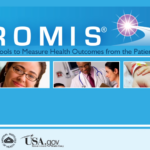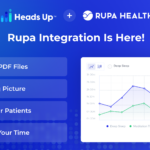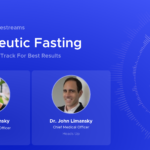Introduction to Supplements and Their Importance
Supplements have become a significant part of modern living, with numerous people incorporating them into their daily lives. These products, which come in various forms, including tablets, capsules, powders, and liquids, enrich the body with the essential vitamins and minerals that may not be adequately provided by a regular diet. The importance of supplements cannot be understated. They play a vital role in filling nutritional gaps, boosting immunity, enhancing physical performance, and supporting overall health and well-being.
However, despite the widespread use of these dietary aids, there remains a considerable amount of misunderstanding and misinformation surrounding the subject. It’s essential to understand that not all supplements are created equal. The quality, efficacy, and safety of these products can vary dramatically, which underscores the need for proper validation and verification of supplements outcomes.
This constant need for validation is not without reason. The supplement industry, now worth billions, is a vast and varied landscape. With countless products in the market, consumers are often left confused and overwhelmed when choosing the right supplement. This is where the importance of validating supplement outcomes comes into play.
Why People Take Nutritional Supplements
People take nutritional supplements for a variety of reasons. For some, it’s about enhancing their dietary intake and ensuring they get sufficient nutrients, such as vitamins, minerals, and essential fatty acids. For others, it’s about addressing specific health concerns or conditions, boosting performance in sports and fitness activities, improving cognitive function, or even managing weight.
The reasons for taking nutritional supplements are as diverse as the supplements themselves. Aging populations may take supplements to replenish nutrients they are no longer getting in adequate amounts from food alone. Athletes may use them to enhance their performance and recovery. Pregnant women may take folic acid to reduce the risk of neural tube defects in their babies.
However, whatever the reason for taking these supplements, the expectation is the same: that they provide the promised benefits. This is why validation is so crucial in the supplements industry. Validation provides assurance that the supplement will deliver the claimed benefits, ensuring consumers get value for their money and, more importantly, safeguard their health.
The Ongoing Debate: Do Supplements Work?
The efficacy of supplements has been a subject of ongoing debate, polarizing opinions among health professionals, researchers, and consumers alike. This controversy is rooted in the inconsistent results and interpretations of scientific studies on the subject. Some studies suggest that certain supplements can have significant health benefits, while others indicate that the effects are negligible or even potentially harmful.
This debate is further fueled by the fact that the supplements industry is not as tightly regulated as the pharmaceutical industry. This has led to concerns about the accuracy of supplement labels, the quality of ingredients, and the veracity of health claims made by supplement manufacturers. Critics argue that without rigorous testing and verification, it’s difficult to ascertain whether supplements work as advertised.
On the other hand, proponents of supplements argue that many of these products have been used safely and effectively for centuries. They point to numerous studies indicating that supplements can provide essential nutrients that many people lack in their diets, particularly in developed countries where processed foods are prevalent.
Evaluating the Effectiveness of Nutrition Supplements
Determining the effectiveness of nutritional supplements requires a multifaceted approach. This includes examining the quality of the ingredients, the method of delivery, the dosage, and the body’s ability to absorb and utilize these nutrients.
Quality is a critical factor when evaluating the effectiveness of a supplement. High-quality supplements are made from pure, potent, and safe ingredients. They are manufactured under strict quality control standards to ensure their purity and potency. However, not all supplements meet these standards, which can affect their effectiveness.
The method of delivery is another crucial factor. Some nutrients are better absorbed in specific forms. For example, some forms of calcium are better absorbed than others, and certain types of vitamin B12 are more bioavailable than others. The dosage also matters. Too little may not provide the desired benefits, while too much can be harmful.
Finally, the body’s ability to absorb and utilize these nutrients is vital. Various factors can affect this, including age, health status, and individual genetic variations. This is why it’s important to choose supplements that are easily absorbed and utilized by the body.
The Science Behind Supplements That Work
The science behind supplements that work is both complex and fascinating. It’s about understanding the body’s biochemical processes and how specific nutrients can support these processes. It’s about exploring the synergistic relationships between different nutrients and how they interact with each other and the body. It’s about investigating the sources of these nutrients, their stability, their bioavailability, and their safety.
Numerous scientific studies have been conducted to explore the effectiveness of supplements. Some of these studies have provided compelling evidence of the benefits of certain supplements. For instance, the National Institutes of Health (NIH) reports that omega-3 fatty acids can help reduce heart disease risk. The American Heart Association recommends omega-3 supplements for people with a history of heart disease.
Another example is vitamin D. According to the NIH, vitamin D is essential for bone health, and supplements can help prevent deficiencies in people who don’t get enough from sunlight or their diet. Other research suggests that certain probiotics can support digestive health and may help with conditions like irritable bowel syndrome.
The Impact of Validating Supplement Outcomes
The process of validating supplement outcomes has a significant impact on the industry and consumers. It not only helps ensure the safety and efficacy of products, but it also enhances consumer confidence and trust in supplements.
Validation provides scientific evidence that a supplement delivers the claimed benefits. This can be achieved through rigorous testing, clinical trials, and third-party verification. When a supplement is validated, it means that it has been thoroughly tested and proven to be effective.
Furthermore, validation can help weed out substandard products and unethical manufacturers. By highlighting the supplements that work, it allows consumers to make informed decisions and choose products that can truly benefit their health.
Advantages of Validated Supplements: A Deeper Dive
Validated supplements offer several advantages. Firstly, they provide assurance of safety and efficacy. With validated supplements, consumers can be confident that they are taking a product that has been tested and proven to work.
Secondly, validated supplements help reduce the risk of adverse effects. Because they have been thoroughly tested, the likelihood of encountering harmful side effects is significantly reduced.
Thirdly, validated supplements can lead to better health outcomes. When a supplement has been validated, it means that its health claims are backed by scientific evidence. Therefore, consumers are more likely to experience the health benefits that the product promises.
Finally, validated supplements contribute to trust and transparency in the industry. When manufacturers take the time and effort to validate their products, it shows that they are committed to providing high-quality, effective products.
Case Studies: The Success of Validated Nutritional Supplements
The success of validated nutritional supplements can be seen in numerous case studies. For instance, a study published in the Journal of the American Medical Association found that omega-3 fatty acids can reduce the risk of heart disease. This study validated the effectiveness of omega-3 supplements, leading to increased consumer confidence and sales.
Another successful case is the validation of probiotics. A study published in the British Journal of Nutrition found that certain strains of probiotics can support digestive health. This validation has led to a boom in the probiotics market, with consumers increasingly seeking out these beneficial bacteria.
These case studies illustrate the transformative potential of validating supplements. By providing scientific evidence of their benefits, validated supplements can enhance consumer confidence, improve health outcomes, and drive industry growth.
Mode+Method was looking to validate a new product in the supplement space aimed at increasing a customer’s HRV with a goal of rapidly scaling sales this calendar year. Their primary challenges were finding users to test the product, the cost of collecting, managing, and analyzing health data, finding the right partner(s), with a flexible platform. After using Heads Up’ they were able to validate the efficacy of their HRV+ supplement and used that to launch their product sales. Read full case study.
The Future of Supplement Validation and Its Impact on the Industry
The future of supplement validation will likely involve more rigorous testing, stricter regulations, and greater transparency. As consumers become more knowledgeable and discerning, the demand for validated supplements will continue to grow. This will drive the industry to invest more in research and development, improve manufacturing practices, and provide more accurate and detailed information about their products.
The impact of this trend on the industry will be profound. It will encourage manufacturers to focus on quality over quantity, to invest in science rather than marketing hype, and to prioritize consumer health over profits. This shift will ultimately lead to a more trusted, respected, and successful supplements industry.
The Transformative Potential of Validating Supplements
In conclusion, the validation of supplements has the potential to transform the industry and improve public health. By providing scientific evidence of their safety and efficacy, validated supplements can enhance consumer confidence, lead to better health outcomes, and drive industry growth.
While the process of validating supplements can be complex and costly, the benefits far outweigh the challenges. As more manufacturers embrace this practice, the quality, safety, and effectiveness of supplements will continue to improve, benefiting consumers and the industry alike.
Are you interested in learning more about validating your supplements outcomes?
Schedule a call with a study specialist today.











